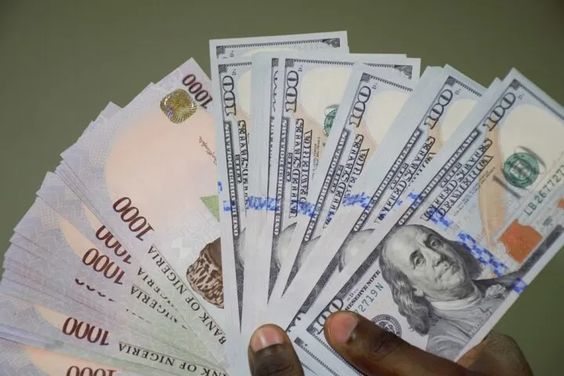Business
Concerns are raised as the Naira approaches N1000 per $1 due to the CBN investigation

Two months after the Central Bank of Nigeria floated the Naira, the country’s currency is still falling precipitously against the dollar, which has made the problems facing Africa’s largest economy even worse.
The country’s currency has continued to decline against the Dollar from June 14 when the CBN liberalised the foreign exchange market, from N750/$1 on the so-called black market to N950/$1 on August 14, 2023.
As the difference between the official window and the parallel market increased to N181, undermining the purpose of the CBN’s floating of the Naira, the situation grew increasingly concerning.
According to analysts with knowledge of the industry, the current investigation of the apex bank by special investigator Jim Obazee, who was appointed by President Bola Ahmed, may have made the Naira’s depreciation worse.
The CBN’s seven-year consolidated financial statements were disclosed last week, and the details revealed a total debt of $7.5 billion to JP Morgan and Goldman Sachs, as well as a $33.88 billion foreign reserve. According to economist Prof. Uche Uwaleke, this is one of the reasons why the currency crisis has persisted.
However, the Acting CBN Governor, Folashodun Shonubi, attributed the problems in the sector to unreported foreign remittances and the uncontrolled parallel market.
As a result, the currency crisis is still having an adverse effect on the nation’s economy, which is heavily dependent on oil.
As an illustration of the rising dollar’s value, oil marketers have hinted at a potential increase in petrol station pricing.
That would have an impact on the general public who are still adjusting to the fuel increase in July caused by the loss of the petrol subsidy since June.
Aminu Gwadabe, president of the Association of Bureau De Change Operators of Nigeria (ABCON), stated in an exclusive interview with OBASANJO NEWS24 on Monday that the ongoing forex market issue cannot be attributed to the organization’s members.
He attributed this to the existence of illegal online platforms that operate in numerous countries without adhering to a set of norms, capturing remittances from the diaspora but excluding the official market.
He claimed that recent events in the industry had made it even more necessary for CBN members to pick up diaspora remittance agents in order to close loopholes and stop the forex crisis.
“Our long-standing campaign to require BDCs to pick up agents of diaspora remittances in order to shut the loopholes that the CBN is putting to the fore has been vindicated by the apex bank’s announcement on diversion of diaspora remittances.
“The BDCs should be made the only agents of diaspora remittances and break the monopoly of the agency of the international money transfer operators in order to make diaspora remittance inflows into the official market.
He said, “What we currently have is the prevalence of unlicensed internet application platforms and fintech that operate in several jurisdictions without standardised regulation, grabbing diaspora remittances and denying the official market.
Additionally, Idakolo Gbolade, the CEO of SD & D Capital Management, claimed that the continuous depreciation of the naira might be related to a decrease in forex inflows into the economy, which has led to a shortage of foreign currency.
He claimed that by promoting higher scarcity for their own advantages and financial gain, large oil firms, institutions, and commercial banks significantly contributed to the FX crisis.
Gbolade asked the government to act quickly to implement measures to stop the sector’s continued decline.
“Reduced foreign exchange inflows into the economy, which have caused a shortage of foreign currencies and placed pressure on the country’s reserves, are the primary cause of the naira’s ongoing slide. These strains and our debt obligations have caused a decrease in our foreign reserves.
“The participation of key contributors to the forex market, such as the oil companies and commercial banks, is also questionable because they have supported increasing foreign exchange arbitrage for their own profit.
“The federal government must conduct a rigorous analysis of the policy and make sure that the CBN keeps an eye on its execution.
“This sector’s uncertainty has contributed to rising inflation and rising high costs of living,” he said.
